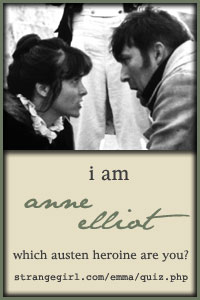Faulkner's The Sound and the Fury is a book to be savored slowly, sitting under trees or on a riverbank. Nothing else is as summery. When I finally discovered it, late in my thirties, I read it straight through, one summer, and then started over again at the beginning. I read it each summer for three years in a row. I may well go back to it now, to drink in the astonishing, luminous prose. (And to try to figure the story out, once and for all!)
I began to feel the water before I came to the bridge. The bridge was of gray stone, lichened, dappled with slow moisture where the fungus crept. Beneath it the water was clear and still in the shadow, whispering and clucking about the stone in fading swirls of spinning sky.. . .I could not see the bottom, but I could see a long way into the motion of the water before the eye gave out, and then I saw a shadow hanging like a fat arrow stemming into the current. Mayflies skimmed in and out of the shadow of the bridge just above the surface. . . . The arrow increased without motion, then in a quick swirl the trout lipped a fly beneath the surface with that sort of gigantic delicacy of an elephant picking up a peanut. The fading vortex drifted away down stream and then I saw the arrow again, nose into the current, wavering delicately to the motion of the water above which the May flies slanted and poised. . . .The trout hung, delicate and motionless among the wavering shadows. Three boys with fishing poles came onto the bridge and we leaned on the rail and looked down at the trout. They knew the fish. He was a neighborhood character.. . .They leaned on the rail, motionless, identical, their poles slanting slenderly in the sunlight, also identical. The trout rose without haste, a shadow in faint wavering increase; again the little vortex faded slowly downstream.. . .They leaned on the rail, looking down into the water, the three poles like three slanting threads of yellow fire in the sun. I walked upon my shadow, tramping it into the dappled shade of trees again. The road curved, mounting away from the water. It crossed the hill, then descended winding, carrying the eye, the mind on ahead beneath a still green tunnel, and the square cupola above the trees and the round eye of the clock but far enough. I sat down at the roadside. The grass was ankle deep, myriad. The shadows on the road were as still as if they had been put there with a stencil, with slanting pencils of sunlight. But it was only a train, and after a while it died away beyond the trees, the long sound, and then I could hear my watch and the train dying away, as though it were running through another month or another summer somewhere, rushing away under the poised gull and all things rushing. Except Gerald. He would be sort of grand too, pulling in lonely state across the noon, rowing himself right out of noon, up the long bright air like an apotheosis, mounting into a drowsing infinity where only he and the gull, the one terrifically motionless, the other in a steady and measured pull and recover that partook of inertia itself, the world punily beneath their shadows on the sun.. . ."Let's go to the mill and go swimming," the third said. The cupola sank slowly beyond the trees, with the round face of the clock far enough yet. We went on in the dappled shade. We came to an orchard, pink and white. It was full of bees; already we could hear them.
"Let's go to the mill and go swimming," the third said. A lane turned off beside the orchard. The third boy slowed and halted. The first went on, flecks of sunlight slipping along the pole across his shoulder and down the back of his shirt. "Come on," the third said. The second boy stopped too.. . ."Let's go up to the mill," he said. "Come on."
The first boy went on. His bare feet made no sound, falling softer than leaves in the thin dust. In the orchard the bees sounded like a wind getting up, a sound caught by a spell just under crescendo and sustained. The lane went along the wall, arched over, shattered with bloom, dissolving into trees. Sunlight slanted into it, sparse and eager. Yellow butterflies flickered along the shade like flecks of sun.
William Faulkner, The Sound and the Fury
image: Fly fishing at Glasbury Looking across the river from the north bank, Trevor Rickard




















No comments:
Post a Comment